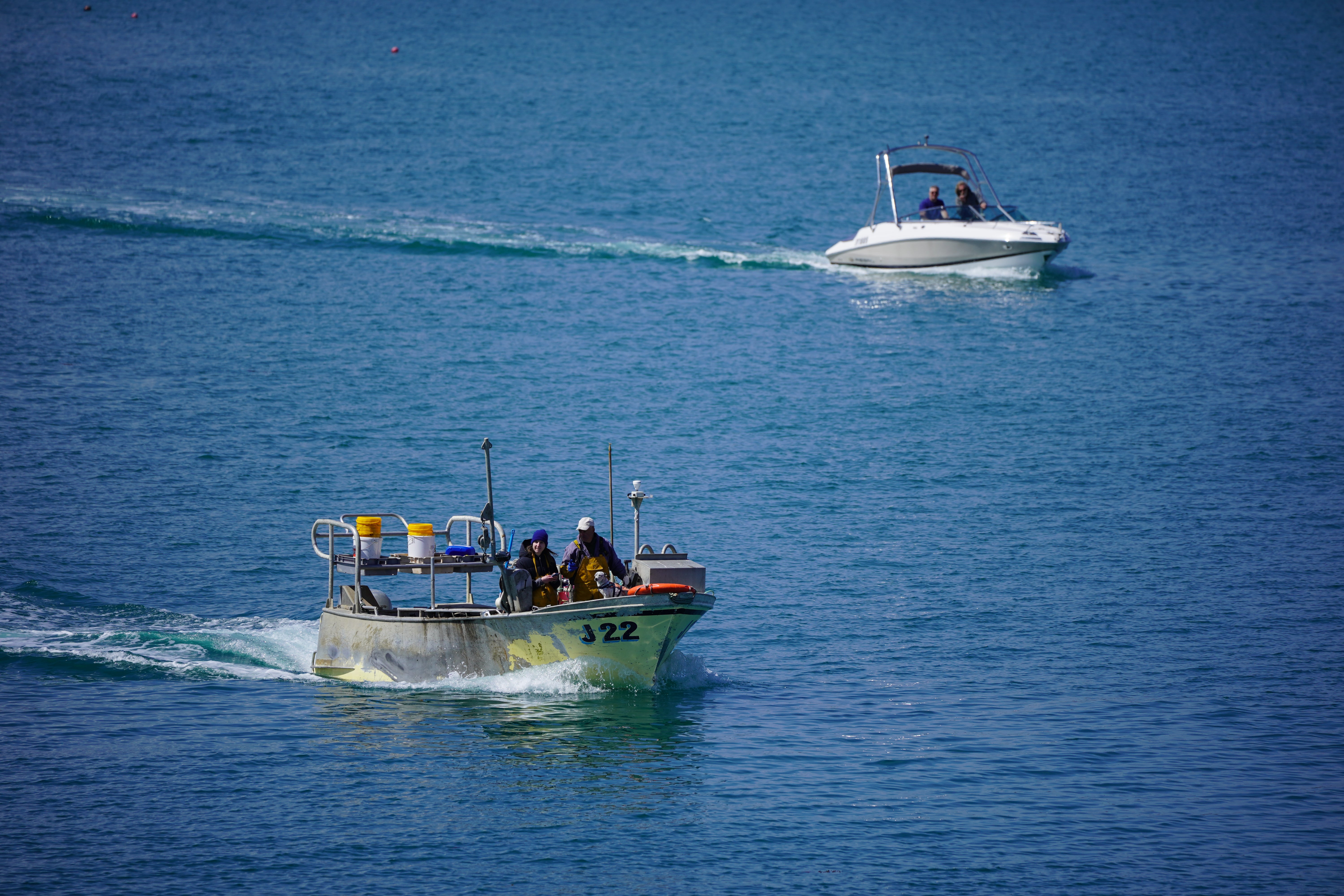Boris Johnson should de-escalate fishing disputes and focus on the climate
Editorial: Regardless of who is right and wrong about Jersey fishing licences, there are more important global issues to focus on

Boris Johnson is completely right that the dispute with France over fishing rights in the Channel is infinitely less important than the discussions about climate change at the G20 in Rome ahead of the United Nations summit in Glasgow. But he is quite wrong to threaten legal action at this stage of a dispute in which the rights and wrongs remain so unclear.
In his meeting with Ursula von der Leyen, the European Commission president, on Saturday, the prime minister “raised his concerns about the rhetoric from the French government”, according to a statement from Downing Street. The British government is trying to suggest that the French have deliberately escalated the dispute because Emmanuel Macron faces a presidential election next year, and getting tough with the Anglo-Saxons has a long pedigree as an electoral tactic.
Equally, it might be suggested that Mr Johnson sees his own electoral advantage in standing up to the French, so that a technical problem over the issue of fishing licences that would, in normal times, be solved in a single phone call has been allowed to get to the stage where each side is accusing the other of breaching treaty obligations and threatening to invoke the dispute mechanisms of the Trade and Cooperation Agreement.
The French side has not helped its case by Jean Castex, the prime minister, writing a letter to Ms Von der Leyen in which he demanded that she “demonstrate to European public opinion that”, among other things, “leaving the union has more disadvantages than remaining within it”. Other translations are available, and Mr Castex’s main point was that “respect for formal commitments is not negotiable”, but his choice of words was unfortunate.
What he may have meant, and what he could have said, was that Britain imposed these complications on itself, and cannot be allowed to ease them by reneging on legal commitments, as Mujtaba Rahman of the LSE European Institute has suggested. But that still presupposes that the UK is in the wrong in what remains a technical question of the burden of proof of past fishing activity in the waters off Jersey, which remains to be demonstrated.
Mr Johnson, while purporting to be shocked by the “completely unjustified” French actions, and while insisting that “all these issues are dwarfed” by the global threat of climate change that world leaders must deal with urgently, seems to be quite relaxed about having another dispute to throw into the mix already being negotiated between David Frost, his Brexit emissary, and Maros Sefcovic, Ms Von der Leyen’s deputy.
Those negotiations over the Northern Ireland protocol ought to be easy to conclude, now that the EU side has made proposals that take a generously flexible and pragmatic view of the risk of the Irish border being used as a back door into the EU internal market. But Mr Johnson and Lord Frost give every impression of having hardened their position for the sake of driving a bargain – demanding that the protocol itself be rewritten just two years after they signed it. They claim to have recently discovered that they signed up to the European Court having a residual jurisdiction in Northern Ireland, and that this is an urgent problem.
It is not; and the fishing dispute has nothing to do with the movement of goods between Northern Ireland and the rest of the UK. The British government should drop its demand to remove the European Court from any role in Northern Ireland; it should separate the fishing dispute from the negotiations in the joint committee; and it should do a deal on the protocol.
All these problems have only arisen because we have left the EU, and leaving the EU has made them harder to solve. Nations ought to work together to solve international problems, which is why the EU was and is a good idea. But these disputes should not get in the way of the bigger goal, which is to bring all the nations of the world together to work on the crisis of climate change. Let them get to it.



Join our commenting forum
Join thought-provoking conversations, follow other Independent readers and see their replies
0Comments